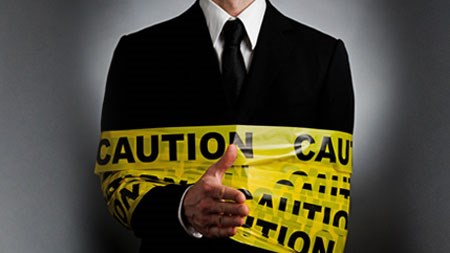Imagine putting your home on the market for a specific sum and then discovering that another agent has not only hijacked the listing and is marketing your property without your permission, but is doing so at a much lower price.
As incredible as it sounds this type of behaviour is apparently becoming more prevalent. Of course, there is a chance that this has been happening for years, but without the endless reach of the Internet it was just a lot harder to spot. Regardless, the practice needs to be stopped.
Why does some agents hijack listings
There are two main reasons: there’s always the chance that a desperate seller may accept a lower offer, and it attracts buyers. Agents need both buyers and sellers and the more of both they have, the greater their chances of making a sale. Unscrupulous agents who fraudulently advertise a property know they probably won’t be able to convince the seller to accept the lower offer, but they also know there will be other homes that could appeal to the buyer. In other words, these properties are nothing more than bait and once the buyer has been lured in by the ‘fake’ listing, the agent shows the legitimate listings in the hope of making a sale.
And these agents don’t only manipulate the price, says Paul Davies, team leader and trainer with BCI Properties. “The descriptions of the homes in ‘fake' listings are often changed or embellished in order to attract buyers. When these discrepancies are queried by the prospective buyer, the agent claims they are ‘typographical errors’.”
Apart from wasting time, this practice could be dangerous. Firstly, one has to question how trustworthy an agent can be if they are willing to fraudulently advertise a home? The other aspect that must be considered is that it’s highly unlikely the agent has actually visited the home and is thus probably unaware of any latent or patent defects.
However, there are even greater risks to the seller
“The damage this type of behaviour can cause the seller can be catastrophic. It stands to reason that buyers will question the validity of a listing if they see it advertised at different prices,” says Davies. “We all make assumptions and in these instances buyers will often assume that the seller will be willing to accept a lower offer and so won’t be willing to pay the higher price, even if they can afford to do so.
“Despite having ‘sold’ the property, the hijacking agents are rarely acting in the seller’s best interests. They are working purely for the buyer and the offer to purchase will often reflect that.
The hijacking agent rarely knows the property, and will have to recreate a disclosure report, or not be able to produce one at all, which could lead to:
• Offers lower than the advertised price.
• Buyer’s remorse due to the fact that the purchaser is not aware of latent or patent defects, which can result in cancelled offers.
• Sellers being charged double commission. This is a real danger. There’s a good chance that the buyer won’t reveal that he has already viewed the property when advertised at the higher price, which could lead to all sorts of problems if it’s ruled that the agent who first showed the property was the effective cause of sale.
“Unfortunately sellers, particularly those who have signed a sole mandate with a particular agency, are often unaware that their homes are being ‘illegally’ advertised by other agents. However, alarm bells should be triggered if they start to receive lower offers from other agents. My advice to those who discover their homes are being falsely advertised is to bring the matter to the legitimate listing agent’s attention and instruct them to contact the agent who has hijacked the listing, and any platforms which are advertising the property. In the event of a private sale, the seller should contact the agent and the advertising platform as well as reporting the agent to the Estate Agency Affairs Board (EAAB) if he feels the transgression merits it.”
What should the agents do that become aware of te problem?
Agents who become aware of the problem should contact the hijacker to discuss the illegal listing and ask that the advert be removed. The phone call should be followed up with an email to the advertising platform (with the relevant mandate agreement) requesting the removal. In the event of repeat transgressions or blatant disregard of the Code of Conduct, report the transgression to the EAAB.
Davies says that although the practice of fraudulently advertising properties is not linked to race, sex, location or agent status (principals have been known to steal listings as well) part of the problem lies with the fact that a growing number of agents and agencies are not registered with the EAAB, and as such, are not bound by rules. “It’s imperative for buyers and sellers to only work with agents who are registered with the EAAB and who have a valid Fidelity Fund certificate.”


